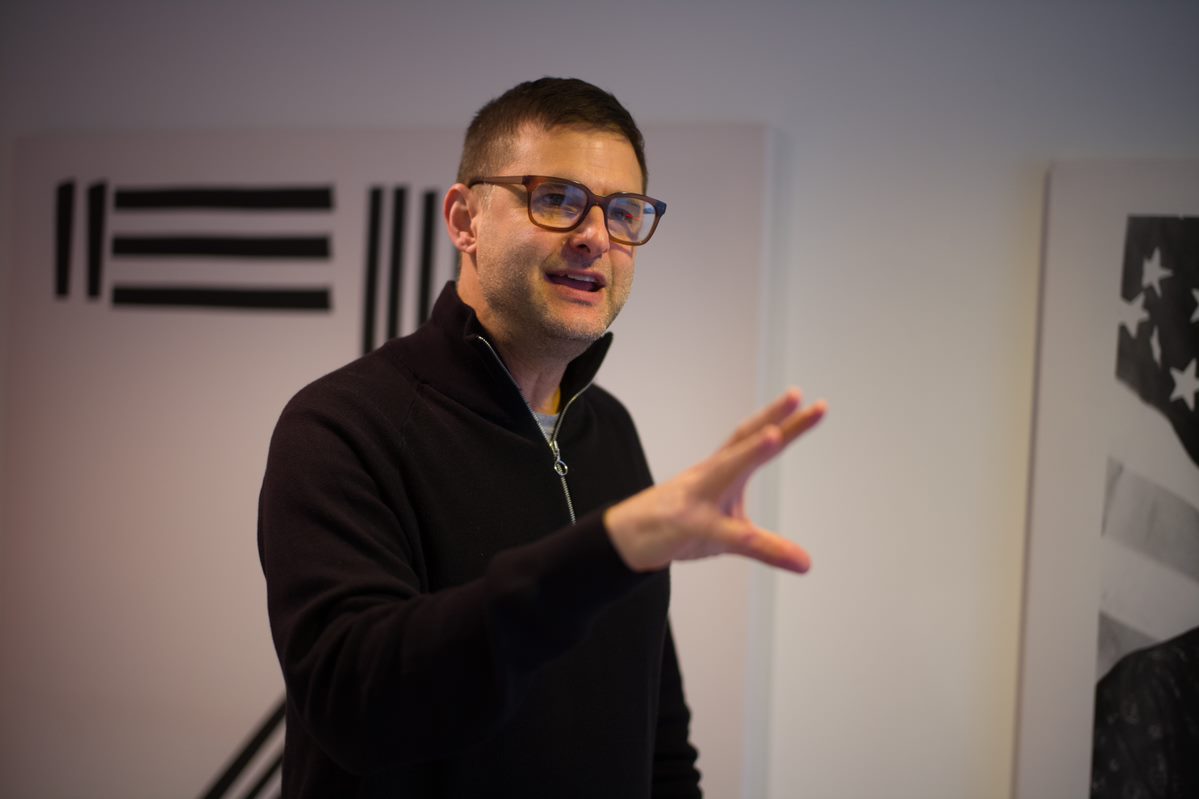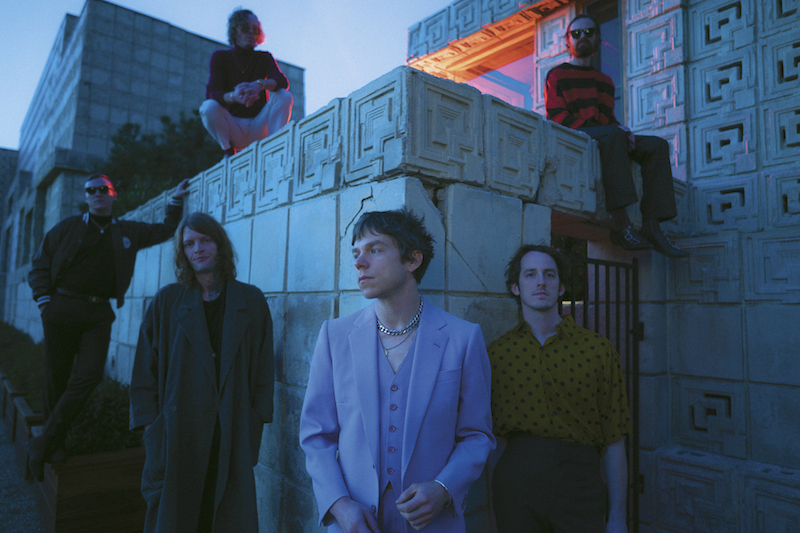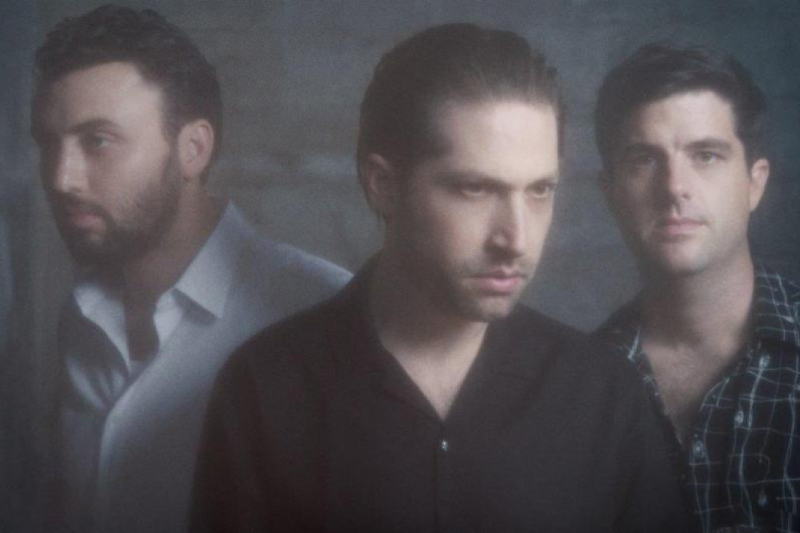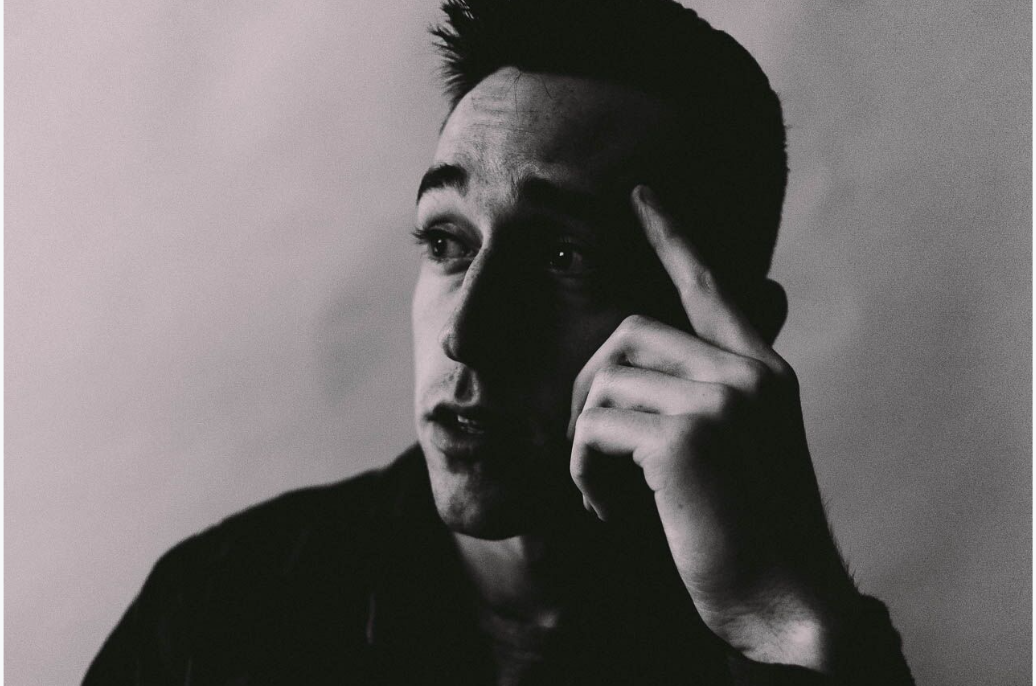Armed with righteous anger, a devastating voice, classical musical training, a BFA in literature from Brown University and an eerie aptitude for relating the human experience, Kirsten Hayter has become retribution personified through her compositions as Lingua Ignota.
The depth and complexity of her three musical works Let The Evil of His Own Lips Cover Him, All Bitches Die and the recently-released Caligula defy easy summation, or even lengthy review. The albums contain a highly-nuanced structure of signifiers, references and systems that could easily fill a book, if not encyclopedia. And yet, they hit with such primal emotion and bombast that they inspire fear, revulsion, a deep unsettling in the unprepared listener.
Believing I was properly prepared, I waited for the mailman to deliver a copy of Caligula to my door in June. Even knowing what I know about her work the album managed to tear at a piece of my soul I hadn’t felt plucked since I put Nirvana’s visceral and aching In Utero into the tape deck of my mother’s Jetta in 1996.
Alternating between despondent victim and storming vengeful accuser Hayter is the centerpiece of compositions that defy categorization funneling pieces of classical, industrial, avant garde, and occasionally black metal into gripping operettas. She defames, she self immolates, she begs “betray me,” she denounces, she despairs, she threatens to “throw your body in a river,” and unveils her wrath—so glorious to behold.
When performing live Hayter, clad in utility lights, lurches and contorts across the stage like a tormented spirit, a live exorcism.
That performance, as Hayter explains, isn’t completely in her control. It’s the product of channeling her experience in an abusive relationship with of a prominent Providence musician that left her afraid for her life and questioning humanity.
Despite the presence of acts like Low, and Waxatachee it’s likely that Hayter will be the act to see at Basilica Soundscape in September as Caligula has become a sensation and her live performances are selling out. I spoke to Hayter by phone shortly after the album’s release.
The Collaborative: Earlier today I saw the Pitchfork review for Caligula and while an 8.1 is great on the Pitchfork scale and it was a wonderful review, I feel like the album deserves much higher praise. It feels to me like a real game-changing release. What’s it like to see all this praise roll in for an album that is so raw and open and deals with deeply personal trauma?
Kristin Hayter: It is extremely bizarre. I really wasn’t prepared for how bizarre it would feel. I was itching to get this stupid thing out. I was like, “Let’s go.” Then two days before the release I was a wreck. I couldn’t function at all. I’m so close to it all, it is all so close to me and it deals with these super personal experiences—to submit that to the world to judge and potentially invalidate was super scary. But now it seems like it really is moving a lot of people and it has been well-received critically.
CO: When you started this journey were you at all prepared to have your work reach thousands of people? It feels like your first album All Bitches Die was a deeply-personal exorcism of the abuse you suffered.
KH: I had no idea. The first two albums I did were released within two weeks of each other in June 2017. They were really just for the Providence noise scene. I actually felt bad because I didn’t want to make people buy this stuff that they’d already heard me playing around all the time. I recorded All Bitches Die alone in a shed in Lincoln, Rhode Island. Then the Body asked me to go on tour and I burned copies myself because I needed something for people to have. And then things sort of escalated through word of mouth.
CO: I’ve read a number of interviews that discuss your work at Brown, your fascination with religion and classical music. When I listen to Caligula I’m struck by the wealth of touchstones and reference points. The album art itself seems to subvert tropes—from male-dominated genres—titles in all caps, your pose very forceful and foreboding. On “Do You Doubt me Traitor,” the refrain “How can you doubt me now” is delivered in a way that reminds me of Trent Reznor declaring “Nothing can stop me now” on The Downward Spiral, an album that is drenched in mysogninstic tropes. So my question is, how intentional was all of this?
KH: It was all fairly intentional. Everything that is there has a purpose. There is very little there that is an intuitive gesture. Everything is based on some sort of research, or procedure. There are references to hip-hop, battle rap and references to artwork and historical work. It is all fairly detailed. Pretty much everything goes back to something else, but there are moments that come just from me, just from my experiences.
CO: As I listen to Caligula I sometimes struggle trying to figure out which instruments are live or digital. How did you record the album? The sound is just so immense and enveloping and at the same time feels intimate and almost quiet.
KH: Sonically, I’m really proud of how this one how came together. Everything we could do live we did—cello, violin, viola. A lot of the noise texture I wanted to divorce from just noise. I wanted to use it for texture, not in the large industrial sense. I did some of it clattering around my garage in utility lights that I use during my set crashing around. There is some synthetic midi and you can’t tell sometimes. We wanted to introduce the concept of space—have it sound very large, but sound extremely intimate and close. It can be very destabilizing with the space moving around the listener to where you aren’t sure what is real and what is not. It’s all thanks to Seth Manchester, who engineered the album. We worked together really closely.
CO: For those who haven’t seen you perform live, you really transform into this primeval spirit of vengeance. I recently interviewed M. Lamar, who is a fan of yours, and we discussed this idea of carrying this burden of suffering, injustice and trauma with him as an artist and his everyday life. You seem to channel things in a similar way. Do you ever get a chance to get away from it? Do you get a chance to just be you?
KH: I don’t know how long I would survive being all that all the time, but it is a huge part of my everyday existence now. Tending to my music is a large part of my everyday life, but I think the personification of the music puts me in a dissociative state that is probably very bad. I mean, I’m basically triggering myself during every performance—I’m gone or somewhere else. It’s hard to explain. There is a large part of my everyday life that is just talking shit with friends, exercising, watching garbage TV in order to stay alive.
CO: Religious imagery and iconography is extremely prevalent in your work. I was surprised to read in a fairly recent interview that you had rediscovered Catholicism. Is that accurate?
KH: I was raised Catholic and became an atheist and then kind of rediscovered it, but I’ve undiscovered it. I did start to redevelop a relationship with Catholicism—the imagery is strongly immersed in my head. I don’t know; my relationship is kind of complex. I think in musical terms I like religion because of its purported absolute rights and wrongs. There is a very conscious splitting in terms of good and evil and absolute evil and the holy vengeance, the holy wrath of God as a weapon for a survivor to use to move through trauma.
CO: It seems like you surround yourself with like-minded creatives who are always game to work together. Obviously, The Body brought you on your first tour and you’ve worked with the folks from Full of Hell before. What is it like to have that support system and willing collaborators?
KH: There is this crew of people—Thou, The Body, Full of Hell—all of us are really good friends who make such great dark, esoteric music together. I like to work with friends; it’s awesome. The Body in particular are the best people. They are really interested in a lot of different kinds of music. They are always who I will choose to work with. It feels really good to feel like I have a community because I don’t belong to the noise, metal, or, God knows, industrial community.
CO: Basilica Soundscape has a similar vibe of bringing together like-minded artists who push boundaries. Have you been to Basilica Hudson before? Do you have expectations for the festival?
KH: I have heard about it but I haven’t yet had the privilege to attend. I’ve heard it’s super beautiful and very well curated with interesting disparate and cutting edge things going on, so it is something I’m excited about. I am so excited to see M.Lamar.
CO: As I said before, this album feels like a game changer. And judging by the reaction, a lot of doors are probably open to you now. So what do you want next?
KH: I’m looking forward to touring on Caligula for pretty much the entire fall. But I am still working on how to translate some of that stuff live. Then I really want to get back to the studio. I’m sick of this stuff already. I do have a split coming out with Thrill Jockey and then in 2020 there are some big things that have opened up. But you’ll have to wait and see.
Lingua Ignota plays Basilica Soundscape on Saturday, September 14. Weekend passes are $80. Camping passes are available. Follow us on Facebook and Instagram for a chance to win passes.





